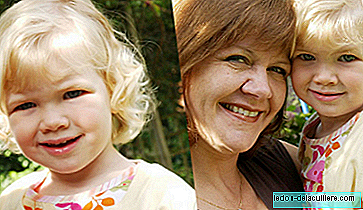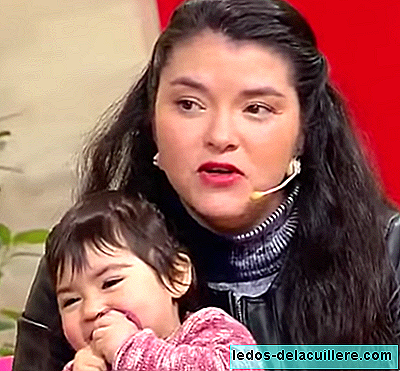
As parents, we obviously worry that our little ones do not have many complications throughout their lives, but we must pay special attention to the problems of overprotection in our children, since it interferes in a very important way in child development.
Let's get in position: our son or daughter is playing quietly in the park with his favorite toy. She is immersed in her fantasy when, suddenly, a child who was also playing around approaches her and without telling her anything, removes her toy, in addition to pushing him and making him cry. We have witnessed this act of childish "vandalism," and outraged we get up in the direction of the child, take the toy away and return it to our little one.
Conclusion: we have satisfactorily solved the problem, but what happens to our son or daughter? He has simply limited himself to observing, and when a similar situation occurs again in which we are not present, he will most likely not know how to resolve the conflict.
It is true that children are born very helpless and need the love of their parents to develop as a person, but to grow implies the achievement of various achievements according to age, such as conquering their autonomy, developing strategies to resolve conflicts and difficulties, tolerating frustration or making decisions and accepting their consequences.
Although these issues seem obvious, sometimes we find children aged five and six who continue to drink bottles or have their mothers dress them every morning to go to school. Do not forget that these are five-year-olds, not five-year-olds.
Some justifications given when asked about this way of acting so overprotective are, among many others, that it is done for comfort or that there is no time. There may be hundreds of reasons, but the truth is that our son or daughter is not doing us any big favors when we act in this way.
Overprotection causes children to become extremely dependent on the adult, unsafe in their actions, with difficulties to face complex situations. To this we must add that, suddenly in adolescence, he is required to mature as if by magic, to take responsibility for his tasks, as well as to inform him of his rights and obligations.
We cannot pretend that everything he has not learned in his first years of life, he learns now suddenly; It is an apprenticeship that is given from birth and, although our children do not come with an instruction manual under the arm, the way we have parents to help them overcome problems is by letting them face them from an early age.
We must make him feel that we believe in him, that he can do increasingly difficult things without our help (climb to a higher slide, eat alone even if it gets stained ...). And if he is wrong, you already know what they say: "you learn more from defeats than from victories." You have to help the child to assume that not everything is when and how he wants.
The way to help our child develop is to convey affection, confidence in their possibilities and understanding in the face of difficulties, as well as to set clear and logical limits. We will accompany you in your search for strategies that help you solve the difficulties you may encounter. Thus, in this way, we will not solve or trifle the solution to the problems; Instead, we will ask you what you can do.
Finally, it is important to know that loving a child very much does not mean avoiding all sufferings. The excesses have never been good. Therefore, we must be careful not to fall into overprotection or over-demand, since at both ends we always find more negative consequences than positive ones.












